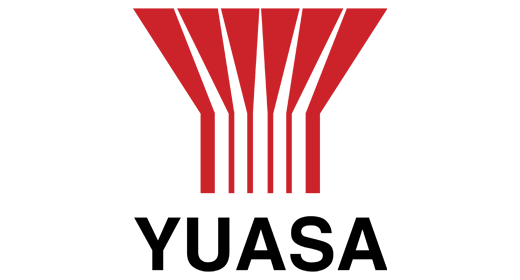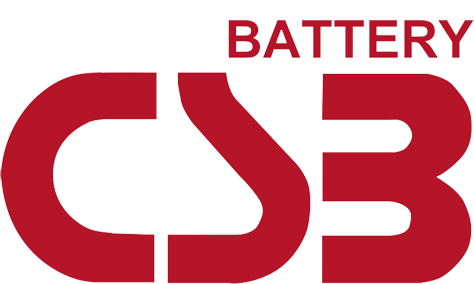How to Choose the Right UPS Service Provider: Key Factors to Consider
As trusted professionals operating in the backup power industry, we recognise that finding a reliable Uninterruptible Power Supply (UPS) service provider in the UK can feel like a herculean task. With a myriad of brands, multiple technical details to consider, and fluctuating market trends, understanding the best way to navigate this sector can certainly seem daunting. Worry not! We're here to provide a comprehensive guide that breaks down all you need to know. From grasping the key concepts around a UPS system and familiarising yourself with the current UK and European market status to keeping an eye on the latest trends in UPS technology and tailoring a UPS system to your specific needs, we've got you covered. This article will equip you with a detailed roadmap to selecting the right UPS service provider for your business seamlessly.

Understanding Uninterruptible Power Supply (UPS)
To appreciate the full sway of technology, our dependence on a consistent power supply cannot be overstated. That's where the Uninterruptible Power Supply (UPS) becomes glaringly crucial.
Definition
Imagine working on a highly critical project when suddenly, out goes the power! The usual culprits—outages, voltage spikes, or perhaps power surges. Your computer shuts down abruptly, halting all progress. A daunting prospect, right? Thankfully, a UPS, or Uninterruptible Power Supply, averts such nightmares.
A UPS acts as an emergency power system, providing a buffer against power failures by offering a seamless transition to a secure power source. It's a bit like our reliable friend, ready to step in and maintain stability amidst the chaos. So, when the power zigs, your UPS zags, ensuring your systems keep running smoothly.
Importance
We enjoy the luxury of uninterrupted digital connections thanks to these unsung heroes. The UPS is an essential line of defence that protects valuable equipment from power interruptions and fluctuations, such as surges, sags, or outages. While offering instant power during a power loss, it also safeguards the connected devices from potential damage.
Remember, an ounce of prevention is worth a pound of cure. Thus, investing in a UPS is a wise move for businesses as well as individuals.
Common UPS Brands
Yearning to know more about the champions in the UPS realm? Here are a few quality brands offering reliable UPS systems to keep you going when the power decides to play truant.
- APC: With a proven track record, APC by Schneider Electric is indeed a bromide among the UPS species. Their products continue to epitomise quality, reliability, and innovation.
- Riello: Boasting an extensive range of solutions, Riello UPS excels at delivering tailor-made systems to suit diverse needs.
- Eaton: Known for its robust and resilient products, Eaton UPS offers unparalleled power management solutions.
These brands are merely the tip of the iceberg, but they are good starting points for those venturing into the world of UPS. No matter who you are—a business owner fumbling with critical data or a passionate gamer who can't afford interruptions — a UPS could be your saviour in those flickering moments. As an added boon, integrating a suitable UPS system could also significantly enhance the lifespan and performance of your electrical equipment.
To sum up, power disturbances no longer must mean system disturbances. In the quiet corners of our technological world, the UPS continues to be the unsung hero, ensuring we stay on track, even during unprecedented power anomalies. So, pause for a moment and salute this unassuming equipment. Its preventative capabilities indeed deserve heaps of praise!
Key Factors to Consider When Choosing a UPS Service Provider
In the world of power management and equipment protection, Uninterruptible Power Supply (UPS) devices hold a place of immense importance. Choosing the right UPS service provider is a decision that can affect the overall efficiency and continuity of your business. With a multitude of providers in the market, how do you pick the right one? Let's dive deep into some essential factors that can help you make the apt choice:
Customer Reviews and Ratings
As a cornerstone in the decision-making process, customer reviews and ratings give firsthand insights into previous customers' experiences and satisfaction levels. They can guide you in understanding the reliability of the UPS provider under consideration. Remember - an aggregate of positive reviews is always a good sign!
Reputation of UPS Brands Offered
Evaluating the reputation of the UPS brands offered by a service provider is pivotal. Brands with high esteem and trust in the market often guarantee quality, durability, and novel technology. Think about it: would you not be more inclined towards a service provider presenting well-regarded UPS brands?
Technical Support and Expertise
Timely and apt technical support is critical for maintaining the uninterrupted functioning of a UPS system. A proficient service provider would offer comprehensive technical support, including regular maintenance and an adept solution to potential issues. Beyond that, their expertise in the field can serve as an added trust booster for customers.
Pricing
While quality takes precedence, the pricing structure is undeniably a significant factor to consider. A stellar UPS service provider will offer you the best quality at competitive rates without any hidden charges. Remember, economically priced services do not necessarily imply inferior quality.
Power Capacity (VA)
The power capacity of a UPS, measured in Volts-Amperes (VA), determines the number of electronic devices it can support. It is crucial to select a service provider that offers UPS with varying power capacities to cater to different needs.
While these factors will be your guiding light, remember that every business has unique needs and circumstances. Therefore, the choice of a UPS service provider should ideally be a result of a balancing act between these factors, tailored to your specific requirements. The right fit will not only safeguard your operations but also contribute to its seamless functionality.
The UK and European UPS Market
Delving into the fascinating realm of Uninterruptible Power Supply (UPS) requires an understanding of the forces dominating the market. The role of UPS systems is paramount—backing up power during erratic power supply or failure. With surges in data centres, IT networks, and telecom operations, the UPS market is expanding rapidly. The topic today revolves around the UPS markets in the UK and Europe; two regions that are emerging as powerhouses in this industry.
Current Market Status
Let us first cast our eyes on the United Kingdom. Enjoying a prosperous phase, the UK's UPS market is experiencing significant growth. As technology gallops forward, we find businesses and individuals becoming more reliant on uninterrupted power supplies, propelling a demand surge in the UPS Market. This tremendous need, compounded by the race to upgrade existing infrastructures, implies a bullish outlook for the UK and provides immense growth potential.
Speaking of Europe, it's a veritable hive of activity as well. Buoyed by similar factors propelling the UK market, Europe is also witnessing a significant boost in their UPS landscape. Key players in the region, like Schneider Electric and Riello, are making substantial strides, further invigorating the European market. The robust growth avenues and plentiful opportunities are pushing the envelope, shaping the UPS industry into a force to reckon with.
Growth Projections
While a snapshot of the present scenario paints a prosperous picture, the future appears even brighter. Projections from market experts put the European UPS Market on course to reach a staggering value by 2031, growing at a Compound Annual Growth Rate (CAGR) of 5.9%. That's a leap that should percolate through every segment of the industry—an exciting wave of colossal change.
To further dissect these numbers, we find the driving factors to be multi-fold. Rapid digitisation, swelling industrial sectors and the increasing need for reliable power supply are major contributors. Coupled with these, the rising investments in renewable energy sectors are also playing their part in accelerating this growth.
In a nutshell, UPS markets in these heavyweight regions provide a remarkable insight into the industry's past, present, and future. They illustrate how constant transformations are shaping a new UPS landscape. They present a success story hinged on technological advancements, sustainable solutions, and a persistent demand for constancy in an ever-evolving digital world.
Maintaining an eye on these markets is critical for anyone entwined in the world of Uninterruptible Power Supply. After all, understanding current trends and future projections guides one towards strategic decision-making and calibrates the lens through which market dynamics are perceived. To sum it up, the UK and European UPS market makes for an enthralling study, an epicentre of colossal growth, and a marker for trends shaping the global industry.
Trends in UPS Technology
Uninterrupted Power Supply (UPS) technology has been a critical support system across industries, providing seamless power supply even when unexpected power failures occur. While the motive of a UPS remains steadfast — safeguarding equipment and preventing loss of data during power outages — the advancements in technology and adaptation to changing times have reshaped its architecture.
As we stride into an era of technology that's constantly evolving, the trends in UPS technology aren't falling behind either. There's a lot we have seen, and there's more to expect in the coming years.
Scalability and Efficiency of Modular UPS Systems
One of the driving trends in UPS technology today is the surge in the use of modular UPS systems. Over the years, modular UPS systems have gained popularity due to their scalability and efficiency factors. With modularity, businesses can increase or decrease the power capacity, aligning it with the needs of the organisation. Not only do modular UPS systems reduce downtime, but they also save energy, making them a go-to choice for most companies.
Advancements in UPS Battery Systems
We cannot miss out on an entire range of technological advancements being made in UPS battery systems. Conventional lead-acid batteries are gradually paving the way for lithium-ion batteries due to their longer life cycle, compact size, and faster charging ability. As we venture further, we will probably witness more incredible advancements in UPS battery technology.
Increasing Demand in Data Centres
In the world of big data, the dependence on data centres is increasing more than ever. We've observed a rise in the demand for efficient UPS systems that can cater to the needs of these data centres. With enormous volumes of data that need constant power supply for processing, the trend of energy-efficient UPS systems in data centres is escalating.
Integration with Renewable Energy Sources
Today, sustainability is no longer a choice but a necessity. More than ever before, we see UPS systems integrating with renewable energy sources. These systems are designed to operate synchronously with solar or wind energy sources, emphasising energy efficiency and reducing the carbon footprint.
Artificial Intelligence Influence on UPS Technology
Artificial Intelligence is turning the tables around in almost all technological spheres, and UPS technology is no exception. AI plays a vital role in monitoring and analysing the data collected from UPS systems, which leads to predictive maintenance, improved battery life, and optimised power usage. The integration of AI in UPS systems signifies an essential trend that extends well beyond 2021.
Specialised Software for Energy Storage
Finally, there's an increasing trend of specialised software for energy storage in UPS systems. These software solutions are designed to regulate power flow, maintain energy usage, and predict potential malfunctions even before they occur. The trend of such software speaks volumes about the leap we are making towards a more efficient and reliable power supply system.
As we embrace these evolving trends, it's crystal clear that technology and innovation are gradually reshaping the UPS landscape. The aim remains to prevent data loss and safeguard equipment, but the way we achieve it is what has been beautifully transformed. The future promises an even more innovative realm of UPS technology - and we're here for it.
Choosing the Right UPS System for Specific Needs
In the ever-advancing pace of today's technological world, power protection has never been more critical. Unscheduled power outages, brownouts, and voltage fluctuations can cause catastrophic damage to your sensitive electronic equipment. An Uninterrupted Power Supply (UPS) offers the perfect solution to these problems, acting as a buffer between your devices and any power issues.
But with a plethora of options available in the market, selecting the right UPS system for your needs can be a daunting task. To guide you through the myriads of choices, let's break down the essential criteria to consider - Power Capacity, Runtime, and Scalability.
Power Capacity
Power capacity is the first and foremost factor that comes into play when choosing a UPS. It's critical to assess the total power draw of all devices that you intend to connect to the UPS.
Here's a quick way to calculate the power capacity you'll need:
- List all the devices you plan to connect to the UPS.
- Find out the power draw of each device (usually indicated in Watts on the device label).
- Add up the total power draw.
Remember, it's always commendable to select a UPS with a capacity 20-25% higher than your total calculated power draw. This overhead accommodates any future additions and prevents overloading of your UPS system.
Runtime
The runtime of a UPS denotes the duration for which it can support your devices during a power outage. The primary reason for deploying a UPS is to ensure an orderly power-down procedure; hence ascertaining the right runtime needed becomes crucial.
Typically, there are two kinds of runtime you need to consider:
- Graceful Shutdown Time - This is the time needed by your system to shut down safely once power is lost, to prevent data or hardware damage.
- Maintaining Power for Critical Systems – If your system needs to keep running through short power outages, assess the typical duration of outages in your area and select a UPS with a runtime that can accommodate this requirement.
Scalability
Considering the scalability of a UPS system might seem to fall down the priority list, yet it is crucial for the future-proofing of your infrastructure. Scalability ensures your UPS can adapt to the growing power needs of your organisation without immediate replacement.
When looking at UPS systems, consider:
- Is there room to add additional battery modules for extended run times?
- Can multiple units be set up in parallel to increase capacity?
- Is the unit part of a scalable range, and can they be upgraded easily as requirements increase?
Choosing the right UPS system doesn't have to be complicated. By keeping the three crucial aspects of Power Capacity, Runtime, and Scalability in mind, you can make a choice that will protect your valuable equipment and ensure business continuity. With the right UPS, power issues will never be able to interrupt your success!
Conclusion
Whether you're a small business owner or head of a large corporation, the obliteration of downtime due to power failures is what everyone desires. Thus, the necessity of a reliable, efficient, and advanced UPS system is unquestionable. Remember - cheap isn't always cheerful, especially when it comes to protecting your business continuity, the safety of your employees, and shielding your digital treasures from power-induced threats.
When opting for a UPS service provider, you may be dazzled by the multitude of options available. However, considering customer reviews and ratings, brand reputation, technical support & expertise, pricing and power capacity will help you make an informed decision.
As we've discussed, our very own Secure Power provides reliable and bespoke power solutions across a multitude of sectors, working tirelessly to ensure you have uninterruptible access to power, even during blackouts. We extend our deep knowledge and unyielding commitment to innovation to our customers, providing them with products that meet their unique needs.
From data centres and hospitals to educational institutions, we provide power security with our comprehensive range of products and dedicated after-sales service. So, no matter the scale of your operation or the industry you belong to, always remember - Secure Power is just a call away to ensure you're never in the dark. Enjoy an uninterruptible power supply with us - because when the lights go out, your productivity shouldn't have to.
Frequently Asked Questions
-
What is an Uninterruptible Power Supply (UPS)?
An Uninterruptible Power Supply (UPS) is a device that provides emergency power to a load when the input power source or main power fails.
-
Why is it important to choose the right UK UPS service provider?
Choosing the right UK UPS service provider is crucial as they ensure the reliability and efficiency of your backup power systems. They provide installation, maintenance, and repair services, ensuring your UPS is in top condition when you need it the most.
-
What factors should I consider when choosing a UK UPS service provider?
When selecting a UK UPS service provider, consider factors such as experience and expertise, reputation and customer reviews, range of services offered (installation, maintenance, repairs), response time, availability of emergency support, and pricing.
-
How can I assess the expertise of a UK UPS service provider?
Assess the expertise of a UK UPS service provider by looking at their years of experience, certifications, training programs attended, partnerships with leading UPS manufacturers, and case studies or testimonials from their clients.
-
Can I rely solely on the manufacturer's service for my UPS maintenance?
While the manufacturer's service can handle the maintenance of your UPS, it's beneficial to have a UK UPS service provider as they often offer more specialised and tailored services, better response times, and enhanced customer support.














